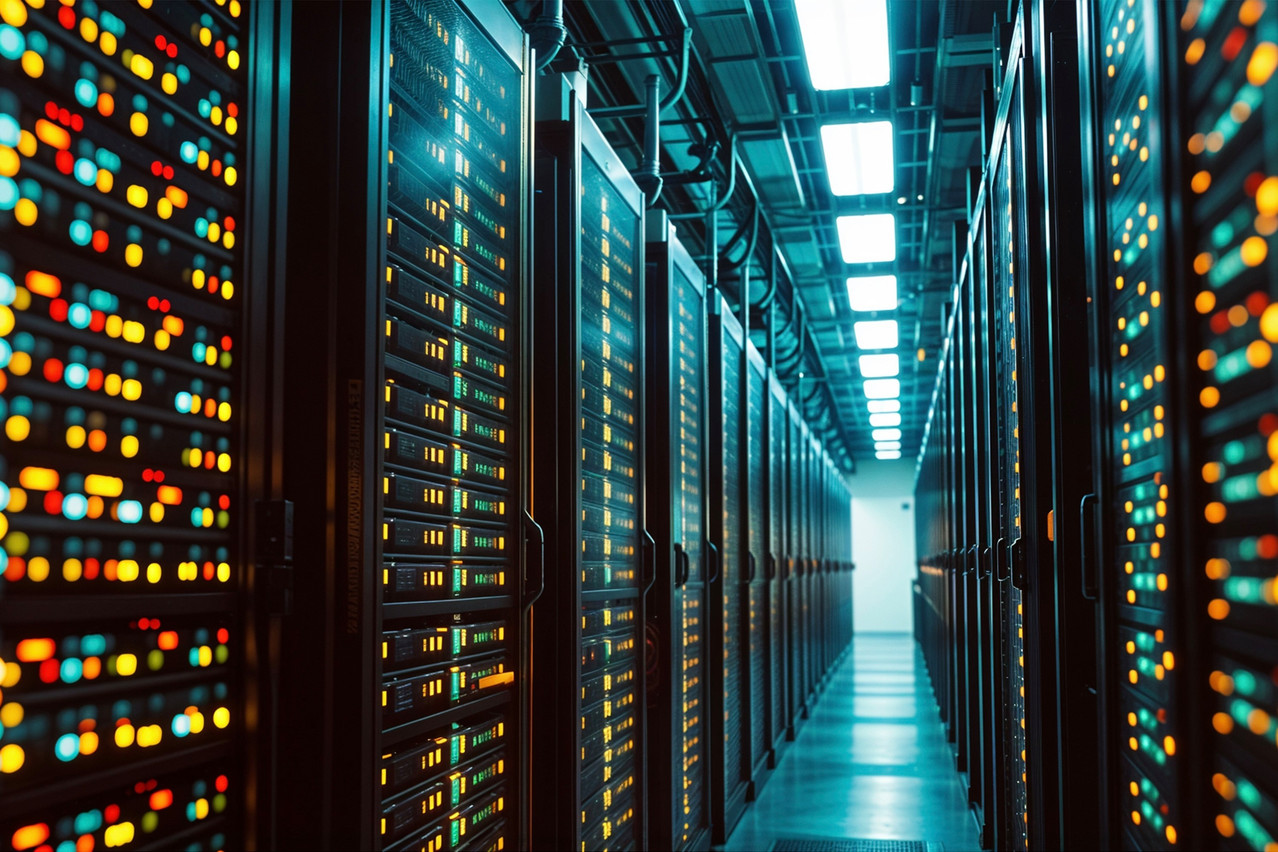The recent surge in artificial intelligence (AI) infrastructure spending is proving beneficial for the credit profiles of US technology companies, particularly those involved in IT hardware and semiconductor manufacturing, stated a by Fitch Ratings on 16 September 2024. The report highlighted robust demand for AI technologies but also raised concerns about potential medium-term challenges, including excess capacity and unclear returns on investment.
Fitch noted that the current wave of AI demand is driving revenue growth in the semiconductor industry, a sector still adjusting after pandemic-induced supply chain disruptions. While inventory levels are gradually returning to normal, demand in consumer electronics and enterprise hardware remains subdued. However, AI-related spending continues to benefit key players in the processor, networking equipment, and storage segments, particularly those supplying hyperscalers, or large tech companies with the financial and technical capacity to invest heavily in AI infrastructure.
Hyperscalers, including major cloud service providers, have been investing over $50bn per quarter in digital infrastructure, with a significant portion allocated to graphics processing units (GPUs) essential for AI workloads. Fitch noted that despite the substantial investment, there is no sign of a slowdown in the near term. The report, however, warned that while AI services adoption is expected to be strong over the long term, widespread adoption could be delayed by the need for extensive data standardisation across enterprises.
In the medium term, Fitch predicted an inevitable pause in AI infrastructure spending, leading to a potential build-up in inventory, similar to what has been observed in previous tech cycles. The report also pointed to broader recovery in personal computer and enterprise spending in 2025, driven by the looming end of Windows 10 support. This recovery is expected to bolster semiconductor revenue growth, even as challenges persist in other segments, including industrial, automotive and consumer markets.
For 2024, Fitch forecast a modest increase in semiconductor revenues, following a sharp low double-digit decline in 2023. The recovery will be primarily driven by AI-related markets and an improvement in memory prices, which had reached historically low levels in the previous year. The robust demand for AI infrastructure is seen as a critical factor in bridging the revenue gap for IT hardware and semiconductor manufacturers until other markets stabilise from the disruptions caused by the covid-19 pandemic.
Among the biggest beneficiaries of the AI boom is Nvidia, widely regarded for its leadership in graphics processors and a comprehensive suite of developer tools that support AI development. Fitch pointed out that Nvidia’s strong position in the market has been bolstered by high demand for AI technologies, while its premium pricing strategy has helped the company maintain profitability. Advanced Micro Devices, although a distant second to Nvidia in terms of market share for graphics processors, is expected to experience solid growth in the AI super cycle through its processor supply.
Other companies benefiting from the AI-driven demand include Broadcom and Marvell Technology. Both companies specialise in custom application-specific integrated circuits (ASICs), which are vital for AI operations.
The AI investment boom has also had significant implications for the memory chip sector. Companies like Micron Technology and SK Hynix are expected to experience increased demand due to the higher memory intensity required for AI chips. Likewise, storage providers such as Seagate Technology and Western Digital stand to gain from increased data processing needs, though their credit ratings reflect some uncertainty.
Taiwan Semiconductor Manufacturing Company (TSMC), the leading foundry service provider responsible for producing nearly all AI chips for companies like Nvidia, Broadcom and Marvell, is also positioned to benefit from the ongoing AI investment cycle. TSMC’s dominance in advanced semiconductor manufacturing places it at the forefront of the AI revolution. Meanwhile, Intel’s strategic efforts to regain technology leadership are seen as part of its long-term goal to capture market share in the lower-cost graphics processor segment and to offer contract manufacturing services to AI markets.
